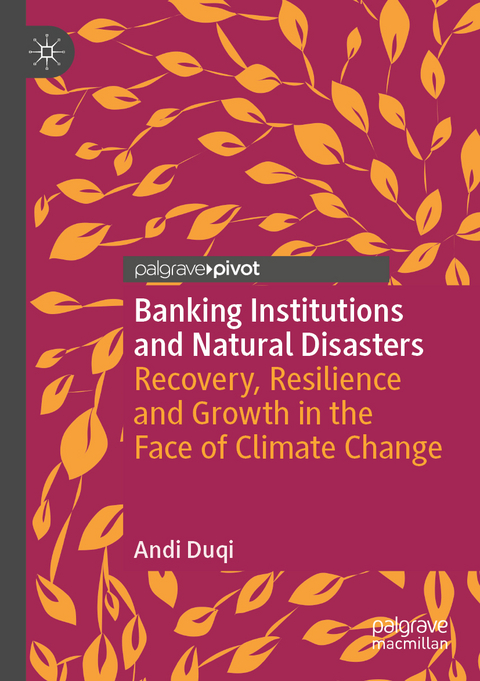
Banking Institutions and Natural Disasters
Springer International Publishing (Verlag)
978-3-031-36373-3 (ISBN)
This book looks more closely at how natural disasters impact bank activity and how banks can support economic recovery after a natural disaster. The importance of banks in this context is underscored by increasing regulatory attention on their role in fostering a sustainable future, but also on the risks that climate change poses to bank stability.
Humanity has tried to cope with the short- and long-term economic consequences of natural disasters for centuries. However, the severity of these events is constantly increasing in magnitude, due to the alteration of the earth's climate and the environment. They pose a serious threat to the lives of millions of people especially in less developed countries. At the same time, the international community has acknowledged that weather hazards' impact and countries' resilience to them are affected by various socio-economic factors, such as the well-functioning of financial institutions, especially commercial banks.
Banks will inevitably adapt their strategies to address concerns arising from climate change. In doing this, the book discusses partnerships with international cooperation institutions, other financial intermediaries, and local governments, so that the green transition ensures an inclusive growth for all, especially the most vulnerable parts of our societies. This book is of interest to researchers, academics, and students of sustainable finance and climate finance.
Andi Duqi is Associate Professor in Banking and Finance at the University of Bologna in the Department of Management. He joined the University of Bologna as Faculty in 2018. He obtained a Ph.D. in Financial Markets and Intermediaries from the University of Bologna in 2012 and was Post-doc Researcher there during 2012-2013. He has been Visiting Research Fellow at the Bangor Business School and Nottingham Business School, UK. Prof. Duqi's research has focused on banking institutions, their performance, efficiency, dividend policy, competition, and their impact on real economic activity. Currently, he is also interested in social impact and climate finance.
Chapter 1. Overview.- Chapter 2. The economic impact of natural disasters.- Chapter 3. The consequences of natural disasters on banking institutions.- Chapter 4. The role of banks in promoting post-disaster economic growth.- Chapter 5. The role of other actors in promoting post-disaster economic recovery in partnership with banks.- Chapter 6. Conclusions and Final Remarks.
| Erscheinungsdatum | 14.08.2024 |
|---|---|
| Reihe/Serie | Palgrave Studies in Green Finance | Palgrave Studies in Impact Finance |
| Zusatzinfo | XVII, 145 p. 29 illus., 27 illus. in color. |
| Verlagsort | Cham |
| Sprache | englisch |
| Maße | 148 x 210 mm |
| Gewicht | 221 g |
| Themenwelt | Wirtschaft ► Betriebswirtschaft / Management ► Finanzierung |
| Betriebswirtschaft / Management ► Spezielle Betriebswirtschaftslehre ► Bankbetriebslehre | |
| Schlagworte | climate change • Economic Growth • Economic impact of natural disasters • Green finance • natural disasters • Recovery lending • Sustainable Finance |
| ISBN-10 | 3-031-36373-6 / 3031363736 |
| ISBN-13 | 978-3-031-36373-3 / 9783031363733 |
| Zustand | Neuware |
| Informationen gemäß Produktsicherheitsverordnung (GPSR) | |
| Haben Sie eine Frage zum Produkt? |
aus dem Bereich


